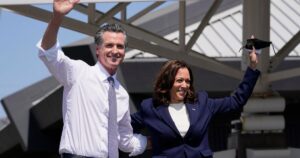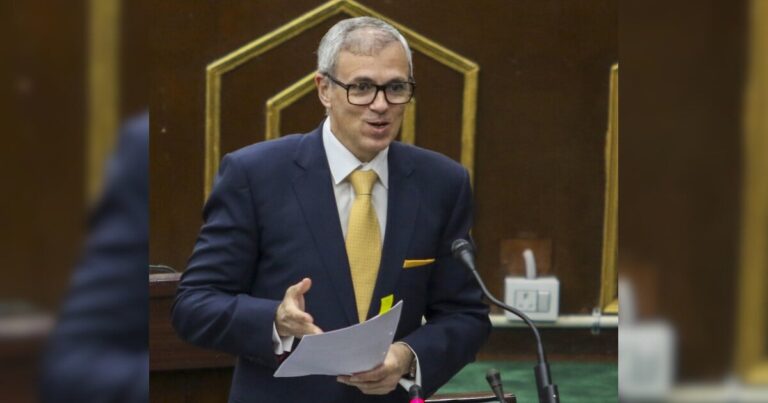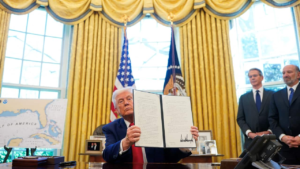The United Auto Workers’ leader endorsed automotive tariffs on Thursday, supporting them as a solution to address trade imbalances whilst opposing their implementation for political purposes.
UAW President Shawn Fain expressed approval for President Trump’s stance on free trade issues, despite disagreeing with other aspects of the Republican’s policies. He indicated that tariffs could serve as an essential instrument to protect workers’ interests.
“We support some use of tariffs on auto manufacturing and other similar industries,” Fain said in a webcast. “We don’t support the use of tariffs for political games about immigration or fentanyl. We do not support reckless chaotic tariffs on all countries at crazy rates.”
The UAW leader contested the automotive industry’s assertions that tariffs would be detrimental to US manufacturers and result in increased prices. He drew parallels to the industry’s position during the 2023 UAW negotiations, which ultimately resulted in substantial wage increases for workers at General Motors, Ford and Jeep-maker Stellantis.
“Turns out the companies lied,” Fain said. “They could afford to do the right thing then and they can afford to do the right thing now.”
Stock markets in the United States experienced significant declines on Thursday, relinquishing substantial portions of their remarkable gains from the previous day. The fluctuations stem from ongoing uncertainties surrounding President Donald Trump’s trade policies, despite slight easing of tensions.
Late trading showed the S&P 500 declining by 3.4%, offsetting much of Wednesday’s 9.5% surge that followed Trump’s announcement to temporarily suspend various global tariffs. The Dow Jones Industrial Average dropped 1,048 points (2.6%) with under an hour of trading remaining, whilst the Nasdaq composite fell 4.3%.
“Trump blinks,” UBS strategist Bhanu Baweja wrote in a report about the president’s decision on tariffs, “but the damage isn’t all undone.”
Trump’s primary focus remains on China, with tariffs exceeding 100%. Baweja suggests that even if negotiations reduce these to 50%, maintaining 10% tariffs on other nations could significantly impact projected US corporate profit growth.
US stocks’ downward trajectory intensified on Thursday after White House officials clarified that Chinese imports would face a 145% tax rate, rather than the 125% Trump had mentioned in his Truth Social post on Wednesday, when including previously announced tariffs. The S&P 500 witnessed a maximum decline of 6.3% during the session.
US President Donald Trump’s steep tariff hike targeting Chinese goods, which took effect Thursday, brings Washington’s additional rate on many products to 145 percent, the White House confirms.
Trump’s 90-day halt in fresh duties for dozens of countries has come into place, a White House order showed.
But he has also doubled down by raising new tariffs on Chinese imports to 125 percent, a figure that stacks atop a 20 percent additional duty from earlier in the year over China’s alleged role in the fentanyl supply chain.
This takes the total tariffs Trump has imposed on Chinese products this year to 145 percent, stacking on existing levies from past administrations.
But the latest 125 percent figure on China, aimed at addressing practices Washington has deemed unfair, contains notable exclusions.
It excludes products like steel and aluminum imports, as well as autos, which Trump slapped separate 25 percent tariffs on under separate regimes.
The number also does not apply to goods such as copper, pharmaceuticals, semiconductors, lumber, and energy products — some of which Trump has signaled plans to target separately too.
All of this paints a more complicated picture of tariff levels, even as tensions soar between Washington and Beijing.
US stocks tumbled Thursday as investors assessed the worsening trade war with China, and President Donald Trump clarified that he had raised tariffs on Chinese goods by a total of 145% since taking office.
On Wednesday, the president said he was increasing the import tax on China to 125%, even as he postponed similar punishing levies on most other countries for three months. He also left in place new tariffs on automobiles, steel and aluminum.
But on Thursday the White House put out a statement making it clear the 125% rise was in addition to a 20% tariff Trump had already imposed on China for its role in supplying fentanyl and its precursors in the United States.
The European Union announced it would also delay its retaliatory tariffs on U.S. imports for 90 days, but tensions between China and the United States showed no signs of easing.
Sri Lankan opposition parties and President Anura Kumara Dissanayake met here on Thursday to discuss the impact from the new Trump tariffs. “The President briefed the party leaders on the findings of the committee appointed to conduct an in-depth study on the potential issues that may arise due to the new reciprocal tariff system introduced by the US and to submit recommendations to the government”, a statement said.
The opposition had requested a meeting with Dissanayake to discuss the issue.
The opposition demanded urgent government attention claiming that Sri Lankan exports would be hit by the US tariffs.
On Wednesday, US President Donald Trump said he authorised a 90 day pause on the latest tariffs after recognising that more than 75 countries had been negotiating on trade and had not retaliated against his latest increases in tariffs. Countries subject to the pause will now be tariffed at 10 per cent with the exception of China which faces a 125 per cent tariff.
Sri Lanka’s exports to the US valued around USD 3 billion. Mostly apparel and rubber goods would be subject to a 44 per cent tax while Sri Lanka taxed US imports at 88 per cent.
The opposition claimed the tariff would shut garments factories causing a severe impact on the island nation’s economy.
“The meeting was both successful and positive. The president and the opposition share almost the same opinion on the issue,” the opposition’s main economic spokesman Harsha de Silva told reporters.
The opposition added that they had submitted proposals to enhance exports in order to mitigate the impact from the order which is now being delayed by a further 90 days for implementation from Thursday.
Wall Street shares fell Thursday as a rally faded over lingering concerns about the economic fallout from President Donald Trump’s trade war despite his U-turn on steep new tariffs.
A larger-than-expected drop in US consumer inflation in March added to the pessimistic outlook, as it suggested that uncertainty over Trump’s tariff plans has already taken a toll on the world’s largest economy.
Investors in response sold off the dollar, which had already taken a hit from the trade war worries, even though slowing inflation would give the Federal Reserve more room to cut interest rates to spur growth.
“Is inflation moving sustainably lower or did businesses and consumers pull in the reins as they brace for an economic slowdown?” said Bret Kenwell, US investment analyst at the eToro trading platform.
“Getting lower inflation due to a material drop in economic activity — and thereby jeopardising the economy — isn’t the best route to take,” he added.
Wall Street indices on Wednesday had posted their biggest one-day gains since 2008 after Trump announced the tariff pause, which had sent stocks lower around the globe in recent sessions.
China’s Film Administration said on Thursday it would “moderately reduce” the number of US films it imported into the country, as a standoff between the world’s two largest economies escalates.
US President Donald Trump on Wednesday raised tariffs on Chinese goods to 125 percent, while China has imposed retaliatory levies of 84 percent.
And on Thursday, the effects of the trade war spread to China’s huge and lucrative film market, the world’s second largest.
“The wrong action of the US government’s indiscriminate tariffs on China is bound to further reduce the favourable impression of domestic audiences on American films,” a statement from the film administration said.
“We will follow the law of the market, respect the choice of the audience, and moderately reduce the number of US films imported.”
Beijing already limits the number of foreign films shown in cinemas through a system of quotas.
However, the sheer size of the Chinese market means that losing more of even that limited access would be a blow to US studios.
Showcase Hollywood blockbusters often fare well at the Chinese box office.
Warner Bros and Legendary’s “A Minecraft Movie” took the top spot last weekend, with ticket sales of around $14.5 million, according to the Hollywood Reporter.
Von der Leyen says Brussels wants to “give negotiations a chance” after Trump backs off duties
European Commission President Ursula von der Leyen announced Thursday that the European Union will suspend planned tariffs on American goods for 90 days, following US President Donald Trump’s surprise decision to pause sweeping new trade duties.
“While finalising the adoption of the EU countermeasures that saw strong support from our member states, we will put them on hold for 90 days,” von der Leyen said in a statement. “If negotiations are not satisfactory, our countermeasures will kick in.”
The EU had approved tariffs targeting over €20 billion worth of US exports, including soybeans, motorcycles, and cosmetics, in retaliation for Trump’s steel and aluminium duties. Brussels is still finalising its response to Trump’s broader 20% universal tariffs and car-sector levies.
Von der Leyen stressed that the EU’s “preparatory work on further countermeasures continues,” and that “all options remain on the table.” But the temporary freeze signals a desire to avoid a full-blown trade war.
Earlier, she welcomed Trump’s decision to pause his planned tariffs, calling it “an important step towards stabilising the global economy.” She reiterated the EU’s commitment to constructive talks and its offer of bilateral tariff exemptions on cars and industrial goods.
Global stock markets staged a dramatic rally on Thursday after U.S. President Donald Trump announced a 90-day pause on steep tariff hikes — excluding China from the relief. The move sparked a wave of investor optimism across Asia and Europe, even as uncertainty loomed over Beijing’s position.
Japan’s Nikkei 225 rocketed 9.1% to 34,609.00, leading gains in Asia. Australia’s S&P/ASX 200 rose 4.5%, South Korea’s Kospi gained 6.6%, and Hong Kong’s Hang Seng added 2.1%. China’s Shanghai Composite posted a more restrained rise of 1.2% as tariff tensions with the U.S. persisted.
In Europe, Germany’s DAX jumped 5.6% to 20,776.76, France’s CAC 40 rose 5.4% to 7,235.21, and Britain’s FTSE 100 climbed 4.0% to 7,983.37.
Stephen Innes of SPI Asset Management said investors went “from fear to euphoria,” calling the pause a “manageable risk” and a relief for Asia’s exporters. However, U.S. futures pulled back slightly, with the S&P 500 down 2.0% and Dow Jones futures 1.6% lower.
The surge followed one of Wall Street’s best trading days in history on Wednesday. Still, analysts warned that market volatility remains.
“Everything is still very volatile, because with Donald Trump, you don’t know what to expect,” said Francis Lun of Geo Securities. “The threat of recession has not faded.”
Trump said more than 75 countries are in trade talks and not retaliating, but confirmed China remains an exception — with tariffs on its goods increasing to 125%.
Oil prices retreated despite the market rally. U.S. crude dropped $1.62 to $60.73 a barrel, and Brent crude slid $1.67 to $63.81.
In currency markets, the dollar fell to 146.37 yen, while the euro strengthened to $1.1038.
Stocks rocketed Thursday as a relief rally spread through markets after Donald Trump paused crippling tariffs on US partners, with Chinese investors even brushing off his decision to ramp up duties on Beijing to 125 percent.
The across-the-board gains tracked a blistering performance on Wall Street as the US president said he would delay for 90 days measures announced last week that set off a firestorm on trading floors and sparked global recession fears.
Trump said he would keep in place a basic levy of 10 percent on dozens of countries but upped the ante in his brutal trade war with superpower rival China by hitting it even harder after it retaliated.
China’s own 84 percent retaliatory measures kicked in at 0401 GMT Thursday, later saying that the United States “goes against the whole world” with the measures and called on Washington to “meet halfway”.
With US President Donald Trump going all out in his trade war on China by imposing 125 per cent tariff on import of Chinese goods, Beijing has reached out to the European Union (EU) and ASEAN countries to forge an united front and force the US to backtrack.
Beijing has retaliated with “countermeasures” imposing an 84 per cent tariff on US goods, which will take effect on Thursday. The 27-nation European Union bloc also hit back at Trump’s tariffs on Wednesday by approving levies of up to 25 per cent.
China and the European Union vowed to jointly uphold the multilateral trading system with the WTO at its core, China’s commerce ministry said in a statement released today as per Chinese state media.
Chinese Commerce Minister Wang Wentao and European Commissioner for Trade and Economic Security Maros Sefcovic held discussions via video on Tuesday and discussed enhancing China-EU economic and trade cooperation and responding to the “reciprocal tariffs” imposed by the US, the Ministry of Commerce (MOFCOM) said on Thursday in a statement, Xinhua reported.
The EU and China are each other’s largest trading partners.
During their talks, Wang noted that the US “reciprocal tariffs” seriously violate the legitimate interests of other countries, breach the WTO rules, undermine the rules-based multilateral trading system, and disrupt the stability of the global economic order.
Union Commerce and Industry Minister Piyush Goyal on Thursday said that India is handling the US reciprocal tariff issue wisely, with a focus to increase its trade with the US by two and half times.
Speaking to reporters in Mumbai, the Union Minister assured that India is already ahead in this race, and that discussions were making good progress.
He further said that Prime Minister Narendra Modi and President Donald Trump had decided in February to strengthen bilateral relations.
“India is handling this matter very wisely. Prime Minister Narendra Modi and President Donald Trump had decided back in February to strengthen our bilateral relations and sign a trade agreement that will make trade between India and the United States easier. This will also increase trade up to USD 500 billion, which is about two and a half times more than before,” Goyal said.
“It will create more job opportunities for the people and further strengthen the country’s economy. I believe that India was already ahead in this race, and our discussions are making good progress,” the Minister said.
European stock markets rebounded sharply in early deals on Thursday after US President Donald Trump abruptly paused steep tariffs on most countries.
Frankfurt jumped more than seven percent to 21,124.44 points almost a half hour into trading, Paris gained 7.3 percent to 7,362.06 and London surged 5.3 percent to 8,089.72 following rallies on Wall Street and in Asia.
European markets had fallen around three percent on Wednesday after Trump’s punishing tariffs came into force and China retaliated with its own massive duties against US levies.
But Trump back tracked after European stock markets closed, suspending the higher tariffs against all countries except China.
The US leader, however, left a baseline 10 percent tariff intact and ramped up his trade war with Beijing by hiking tariffs against Chinese goods to 125 percent.
“While there has been understandable relief… the genie is still out of the bottle on policy unpredictability,” said a Deutsche Bank analysis.
“A 10 percent minimum universal tariff represents the largest tariff increase in decades and heightened trade uncertainty is likely to linger, with limited visibility on what kind of deals the US would find acceptable,” it said.
Pakistan will send a delegation to the United States in the coming weeks to negotiate new tariffs, the government said in an announcement before Donald Trump announced a delay to the measures.
Washington announced a 29 percent duty on Pakistani goods last week as part of a blitz against trade partners that roiled global markets.
However, the US president said late Wednesday that he would hold off their imposition for 90 days, though all countries would still face a baseline rate of 10 percent.
Prime Minister Shehbaz Sharif’s office said late Wednesday that a delegation would go to the United States.
On Thursday a source from the Ministry of Commerce, speaking on condition of anonymity, confirmed to AFP on Thursday that the visit wouf still go ahead.
“A high-level government delegation is scheduled to depart for Washington in the coming weeks to hold talks with US officials,” the source said.
According to the Office of the US Trade Representative, bilateral trade between Pakistan and the United States totalled $7.3 billion, with Washington importing $5.1 billion worth of goods from Islamabad in 2024.
Cotton and textiles are among Pakistan’s biggest exports.
Taiwan’s economy is set to take a notable hit from newly imposed US tariffs, with government officials warning of a sharp reduction in the country’s GDP growth for 2025, Taipei Times reported.
National Development Council (NDC) Minister Paul Liu told lawmakers on Tuesday that based on preliminary assessments by a private research institute, the tariffs could lead to a drop in GDP growth ranging between 0.43 and 1.61 percentage points.
The 32 per cent reciprocal tariffs, which officially took effect yesterday, are expected to significantly impact Taiwan’s economic momentum. Liu noted that the tariffs could push Taiwan’s GDP growth below the previously forecast 3 per cent, and possibly even down to 1.53 per cent.
These projections come in contrast to the 3.14 per cent growth estimate released in February by the Directorate-General of Budget, Accounting and Statistics. To better understand the full implications, Liu said the council has commissioned another institution for additional analysis of both short- and long-term effects.
US President Donald Trump has signed an executive order lifting water-pressure restrictions on showerheads, a move the White House said would “make America’s showers great again”.
Trump has long complained about inadequate water pressure in American bathrooms which he blames on federal water-conservation regulations.
“In my case I like to take a nice shower, to take care of my beautiful hair,” Trump told reporters as he signed the order in the Oval Office on Wednesday.
“I have to stand under the shower for 15 minutes till it gets wet. It comes out drip, drip, drip. It’s ridiculous.”
The order directs the Energy Department to roll back “radical green” regulations limiting the flow of showerheads to 2.5 gallons of water per minute.
The White House said the order “frees Americans from excessive regulations that turned a basic household item into a bureaucratic nightmare” and ends the “Obama-Biden war on showers”.
Trump has targeted water-pressure standards for showerheads, toilets, dishwashers and other household appliances, since his first term.
China is reaching out to other nations as the US layers on more tariffs, in what appears to be an attempt by Beijing to form a united front to compel Washington to retreat. Days into the effort, it’s meeting only partial success from countries unwilling to ally with the main target of President Donald Trump’s trade war.
Facing the cratering of global markets, Trump on Wednesday backed off his tariffs on most nations for 90 days, saying countries were lining up to negotiate more favorable conditions.
China has refused to seek talks, saying the US was insincere and that it will “fight to the end” in a tariff war, prompting Trump to further jack up the tax rate on Chinese imports to 125%. China has retaliated with tariffs on US goods of 84%, which took effect Thursday.
Trump’s move was seemingly an attempt to narrow what had been an unprecedented trade war between the U.S. and most of the world to a showdown between the US and China.
China has thus far focused on Europe, with a phone call between Premier Li Qiang and European Commission President Ursula von der Leyen “sending a positive message to the outside world.” The two are each other’s largest trading partners.
“China is willing to work with the EU to jointly implement the important consensus reached by the leaders of China and the EU, strengthen communication and exchanges, and deepen China-EU trade, investment and industrial cooperation,” the official Xinhua News Agency reported.
That was followed by a video conference between Chinese Commerce Minister Wang Wentao and EU Commissioner for Trade and Economic Security Šefčović on Tuesday to discuss the US “reciprocal tariffs.”
Wang said the tariffs “seriously infringe upon the legitimate interests of all countries, seriously violate WTO rules, seriously damage the rules-based multilateral trading system, and seriously impact the stability of the global economic order,” Xinhua said.
“It is a typical act of unilateralism, protectionism and economic bullying,” Wang said quoted as saying.












